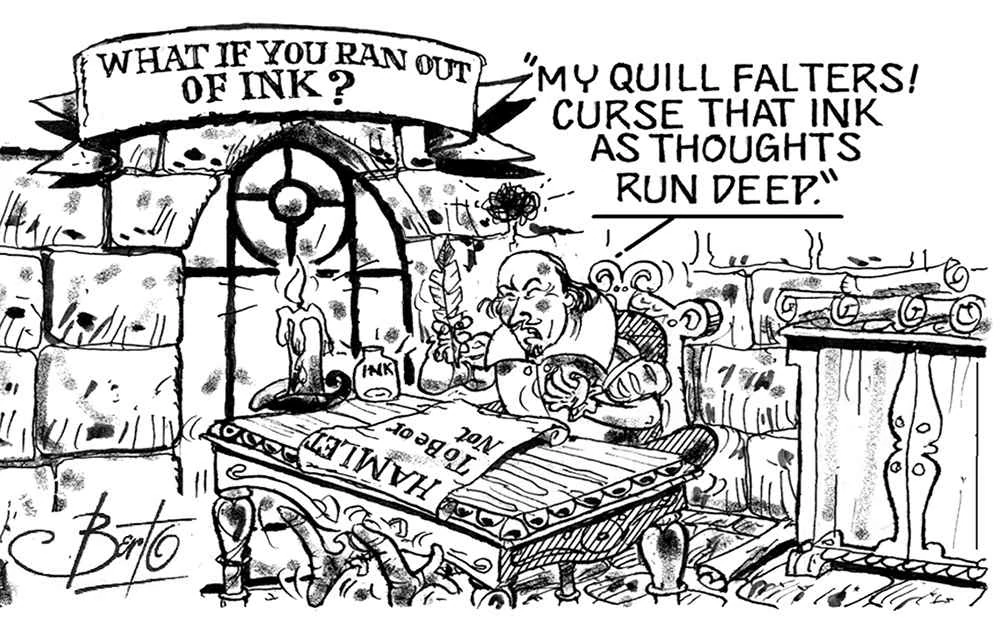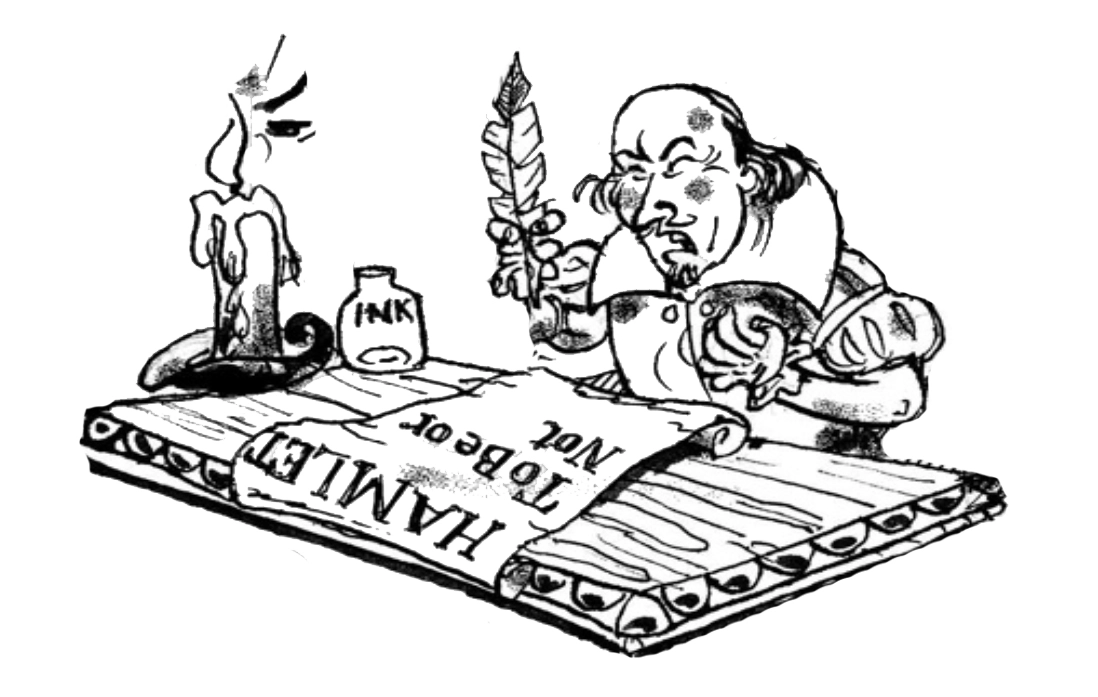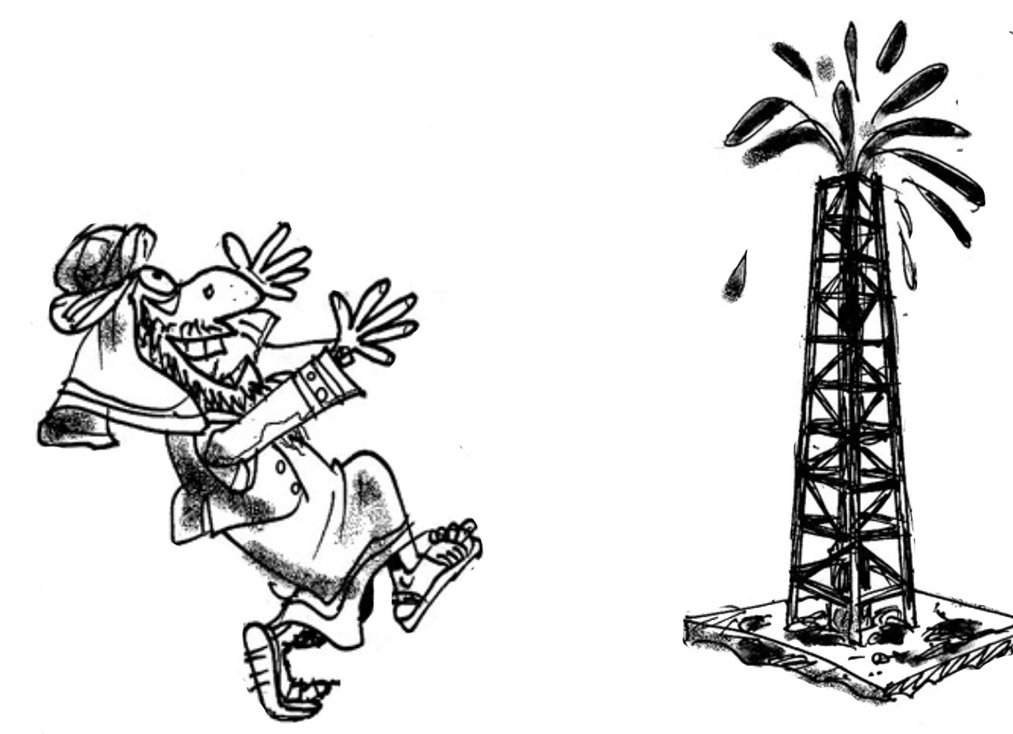Berto Asks Shakespeare To Be or Not to Be
Berto Asks Shakespeare To Be or Not to Be
Running out of ink has been a problem for centuries, whether in a modern office or during the creative pursuits of historical figures like William Shakespeare.
This seemingly minor inconvenience has disrupted work, halted creativity, and, at times, posed immense challenges for those relying on written communication.
The Modern Office: Inkjet Printer Woes
In today’s world, running out of ink in the office is a productivity nightmare. A printer flashing its dreaded low ink warning often heralds in a moment of chaos. Suddenly, vital contracts, reports, or marketing materials are delayed. In a high-pressure work environment, such a disruption can cause missed deadlines and even strained client relationships.
Quite often, printer cartridges are often criticized for their expense and limited yields. Many printers won’t function at all if one cartridge runs dry, even if the document doesn’t require that color. This leads to waste and frustration. Offices that don’t keep backup cartridges face a time-consuming scramble to procure replacements. In addition to this, there are environmental concerns about discarded cartridges, and the problem extends beyond mere inconvenience.
Historical Struggles: Shakespeare’s Quill Dilemma

Now, imagine William Shakespeare in 1601, penning the iconic soliloquy “To be, or not to be” for Hamlet. Quill in hand, inkpot nearby, he pauses for inspiration only to discover… the inkpot is dry. Without a nearby stationery store or overnight shipping, his process would be interrupted by the time-consuming task of mixing more ink.
Ink shortages in Shakespeare’s time were no small matter. The ink was labour-intensive to produce, requiring iron salts, gum Arabic, and tannins derived from oak galls. Running out meant a writer had to either produce ink themselves or locate a supplier, losing precious writing time and creative momentum.
Such challenges weren’t limited to Shakespeare. Monks in medieval monasteries, tasked with creating illuminated manuscripts, often faced interruptions when their ink ran out mid-page. These interruptions could distort the flow of the text and affect the consistency of the work.
Lessons Across Time
Whether it’s the stuttering hum of an empty inkjet printer or the silence of a dry quill, the problem of running out of ink highlights the importance of preparation. Modern offices can invest in high-capacity cartridges or printers with continuous ink systems. Meanwhile, the persistence of historical writers reminds us that creativity often endures despite obstacles.
From Shakespeare to spreadsheets, the ink we rely on connects us to our goals—and reminds us never to take it for granted.
Did it really happen? It doesn’t matter. Our resident cartoonist, Berto, enjoyed the moment with this month’s delightful cartoon.
 Cartoon #138: Berto asks Shakespeare To Be or Not to Be
Cartoon #138: Berto asks Shakespeare To Be or Not to Be
Berto’s previous cartoon, #137: Berto Puts the Wrong Powder in the Printer
Who is Berto? And where can you see more of his work? Click here.











Leave a Comment
Want to join the discussion?Feel free to contribute!